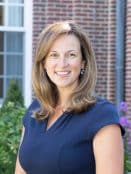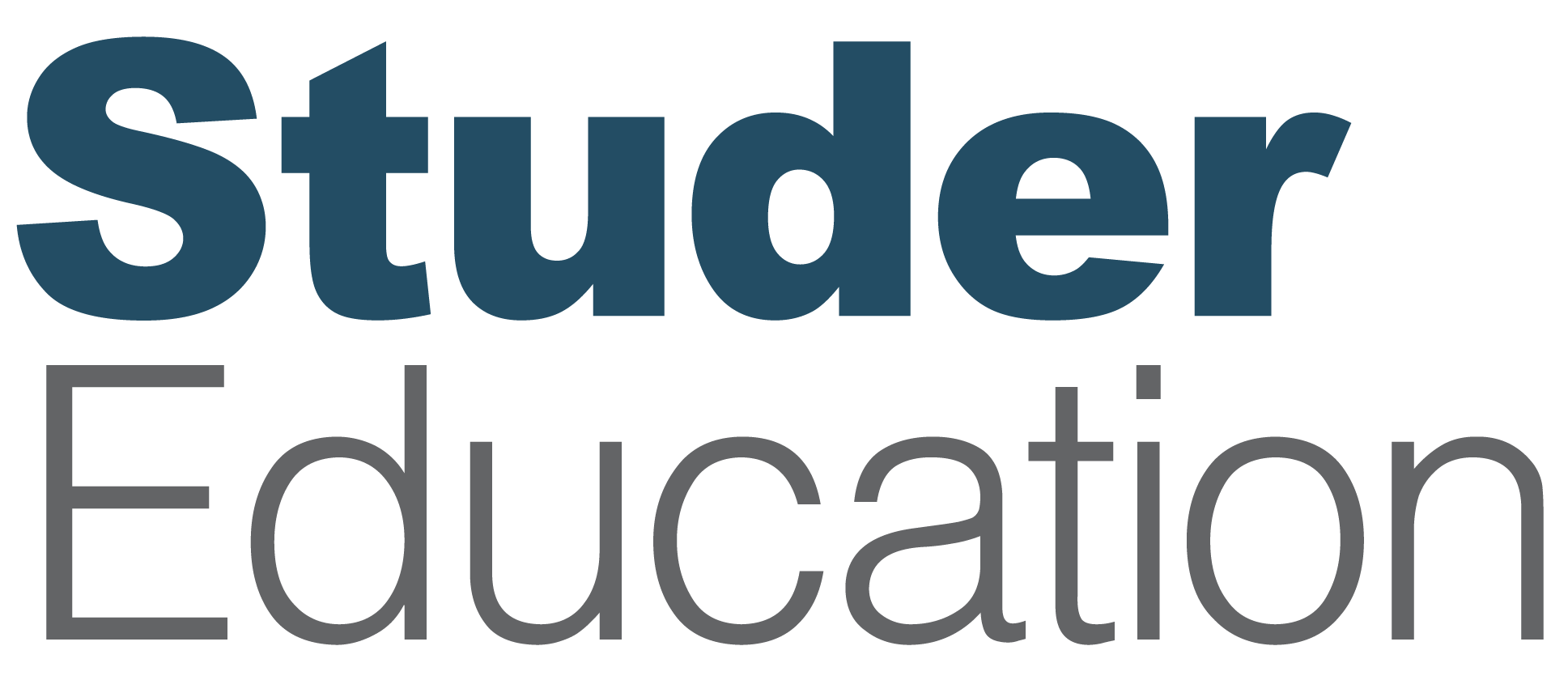
How does a high-achieving district continue to elevate its performance? According to Dr. Kelly Tess, Superintendent of Winnetka Public Schools, the answer lies with leaders who never stop learning and who embrace simplicity in their strategic approach. Tune in as she joins host Dr. Janet Pilcher to share how she and her team are relentlessly pursuing consistent student growth. Learn how high-achieving school district strategies and practices like comprehensive coaching, instructional consistency, and leadership vulnerability drive excellence and help everyone find meaning in their work.
This episode addresses questions such as:
- Why is it important for a high-performing district to continue to focus on improvement?
- What are the benefits of a simplified strategic plan for the team and community?
- How does a coaching model support the development and growth of leaders’ skills to deliver on the strategic plan?
Recommended Resources
Latest Episodes
Kelly Tess: To me, the best leaders are the ones who can say, “I don’t have all the answers, and I’m very willing to be taught.” And I think that the model that Studer presents very much emphasizes the importance of that.
[Intro music plays in the background.]
Introduction
Janet Pilcher: Hello, everyone. Welcome to the Accelerate Your Performance podcast. I’m your host, Dr. Janet Pilcher, founder and president of Studer Education.
What do you focus on when you lead an already high-achieving district? How do you know what the next step is? Those were critical questions facing Dr. Kelly Tess, Superintendent of Winnetka School District, for the past couple of years post-pandemic. Achievement was high in her district, yet the drive to grow was clear.
Join Kelly and me today as we discuss how she pinpointed the next steps for her district. We’ll also dive into the importance of consistent instructional practices, simplifying complex strategic plans into a focused approach, and the vital role of coaching in leadership development.
Kelly brings over 20 years of experience from diverse educational roles all across the country, from California to Alabama and now to Chicago’s North Shore. Winnetka prides itself on its progressive roots committed to honoring the whole child by fostering creativity, inspiring a love of learning, and developing civic responsibility in every child.
Let’s dive in with our conversation with Kelly.
Interview
Janet Pilcher: It’s with great pleasure that I welcome Kelly Tess, Dr. Kelly Tess to our show today. Kelly, welcome. So glad to have you.
Kelly Tess: Thank you. It’s a pleasure to be with you.
Janet Pilcher: Yeah, looking forward to this. So let’s start with your district. Winnetka has traditionally been a high performing district and you’re entering the focused work on improvement. So talk a little bit about, because sometimes that’s the hardest, Kelly, when we have a high-performing district, it’s hard for us to really rely on we can get better and continue to get better. So talk a little bit about why it’s important for you and your board to focus on improvement.
Kelly Tess: Sure. Yeah, we are a district with not only a history of high achievement, but a long and rich history of being progressive educators, which is not a common approach to instruction in a public school system. To our knowledge, we are the only standing public school district that continues to follow that approach.
And so knowing that that is a piece of our history, and that we have this long past that we can point to that shows that our students are high achievers, it would be a natural question, “Well, then what do you need to do? What exactly are you going to focus on in terms of improvement?”
And I think for us, it’s twofold. One, we noticed, especially post-pandemic, that while our achievement was still very high, our growth was not sustaining in the manner that it had in the past. And growth is really, especially in a high-achieving district, growth is really where you can place your focus. Whether it’s by subject or by skill, that is where you can really drill down and figure out where you can make a difference for students to continue to grow at, especially if they’ve shown in the past that they were able to do that.
And then I think the second part of that is just more of an instructional one, really investigating our instructional practice. Are we affording students consistent experiences across all of our schools, across a single grade level from classroom to classroom?
And if the answer is no, which is really what we found, then why? And what’s the consequence of that? And that really was an answer to a part of our growth question is that students were not receiving the same experiences, classroom to classroom, grade to grade. And there’s a part of that that’s beautiful and important. And you want to retain that because the touch that a teacher puts on the classroom environment and the way they connect with kids and the way they communicate with parents and just the special way that they build a warm space in their classroom. That should always be unique and special. But it shouldn’t be the determining factor of whether or not a student develops the skills they’re supposed to develop by the end of that school year.
And so we really needed to focus on what are we affording our teachers to make sure they have the tools and resources they need to guarantee that that is the outcome at the end of the school year.
Janet Pilcher: Yeah, I think so important what you’re talking about, Kelly, and you know, I like the term “consistency of practice,” right? What you’re talking about, that consistency, because that’s really what, you know, it’s kind of the freedom within the fence. There’s the fence in terms of what we have created. There’s freedom within that fence, but there’s consistency across those experiences for either what we provide to the people who work with us, what we provide to our families, what we provide to our students. And you know, that, the drive of that, I think what you’re talking about is really, really important. And from your perspective as a superintendent, just an important lens to look at. And sometimes when I look at Jim Collins’ work, like from Good to Great, and we’re looking at those level five leaders, I mean, consistency of practice and relentlessness to continue to drive to get better.
I mean, those pieces really are deep down what, what are important for us to continue. You probably feel this way; the pressure is probably high for you, because the minute you take your eye off of it, and you dip, I mean, it’s even more pressure for you, I would think.
Kelly Tess: It is, I think that Good to Great reference is a good one, because I feel like the question was, well, “what about when you’re already great? What if you’re already there?” And every indicator is telling us, we’re at great. What’s above that?”
And I think it’s just shifting the conversation to not necessarily be about continuing to climb a ladder, but rather continuing to hone our skill, because regardless of whether or not we’ve had high results, every year the kids change. A new batch comes to us, every kindergarten is a fresh batch of students with a different set of needs.
And, you know, developmentally, they’re going to have some commonality between them. But what some of us did when we started teaching, you know, in the 90s is not necessarily what we know to be best practice now in 2025. And so how do we continue to stay on our game so that we maintain great always and don’t rest on, you know, a reputation that was built long before any of us were in these roles?
Janet Pilcher: Yeah, so good. So you started, Kelly, with decisions, you started the process updating your strategic priorities. You know, talk a little bit about how that’s been helpful for you all to move forward.
Kelly Tess: I think the most eye-opening and significant impact for us in partnering with Studer through this process has been the emphasis on simplicity, truly. I think that is the game-changer and also has been the hardest shift for our team, for our board to make because we have spent years and years writing very lengthy reports with lots of flowery language and big commitments and predetermined goals. And that was a lot of hard work and there was a huge product to show for it. But was it truly targeting the timely needs of our students, community, and staff?
And I think what we found is they were all very well intended. And it was good work, but maybe not necessarily the right work, or the timely work. And the simplicity of this model that we’ve shifted to with Studer’s partnership has really been about look at your needs now and respond to that now and do that in a place with a targeted focus where you know you’re going to be able to say, “Look at what we were able to accomplish.” As opposed to, you know, the strategic plan that’s five years in length and you’re going to determine five years before it’s over what you’re going to need in five years in order to pat yourself on the back.
And I think we all realized even though almost everybody has been doing it that way for a long time, oh, that’s not actually the process that’s going to best serve us. Let’s boil it down, let’s listen to our people at every level, and let’s figure out how we can better serve because really ultimately that’s what we’re here to do is to serve.
Janet Pilcher: Yeah. Yeah. And the simplicity piece, gosh Kelly, you know, I just had a conversation with someone this morning, really more from our standpoint internally, and I’m like, you know, one of our standards of excellence is making the complex simple, right? You know, and that, you’re right, it’s so hard. I mean, it’s so easy in terms of conceptually thinking about that. But sometimes it’s so difficult to do because we tend to want to over complicate, and that strategic plan. Talk a little bit then, you mentioned it from a strategic planning process now to really building that simplicity. You know, what’s the benefit of that for your team?
Kelly Tess: I think what it helps do is it makes it really clear to any consumer of that information what it is that you’re spending your time on. And it gets us away from the, you know, what is largely a foreign language to a lot of people outside of education, the acronyms we use and the, you know, processes and protocols that we refer to, and it just boils it down to simple language and simple focus so that if you’re a second grader being impacted by the plan, or you’re a parent with a second grader, or you’re a community member that doesn’t really have any tie to the school, anyone can pick it up and say, “I know what they’re doing. I know what they’re trying to accomplish.” And they’re able to see more importantly the results of that. So then that relies on us to do a good job of putting that out there and making sure people see the fruits of our labor over a year or over five, depending on, you know, how closely you want to look at the plan.
What’s really interesting about that, though, the simplicity approach in a high-achieving system full of type A, high-achieving adults, that is a really hard ask, I’ve learned. I almost think that this work becomes more challenging with that concentrated personality and leadership style, because everyone wants to get an A, everyone wants to exceed. And it’s very hard to ask them to just hold on for a second. Let’s focus on the little pieces of work that we’re going to do to get us to that successful result. Stop looking so far down the road at the finish line and look more at the incremental parts of the marathon that we’re on together.
So while it’s simple, I think for me the realization is how I can best support the leaders on my team to slow their roll a little bit and also be patient and flexible with the plan. We may have set out to accomplish this goal and halfway through we realize we’re headed in the wrong direction. And who’s telling us that? Our student data, our parent feedback, we have to be willing to shift gears and so that, that is the simplicity of it and also the complexity of it because of the types of leaders that we have in our system.
Janet Pilcher: It can be difficult to do, so talk a little bit more about that. So you’re shifting your thinking as you do the work and you’re developing your leaders. So talk about, like, how do you do that development with them to help move them.
Kelly Tess: Yeah, well again, the model that Studer has built, you know, settles on simplicity but I also think the coaching aspect of it, which, having worked with other partners through strategic plans before, that is not a typical model. That is not usually something that you see offered in partnership with the development of the strategic plan. That, to me, was the most attractive piece because it’s really the coaching effort that is going to make the difference in honing and developing and growing the skills of your leaders to be able to deliver on that plan.
So, I think, you know, in the past I’ve been part of strategic planning where it’s like, “okay, we spent a year. We got everybody’s feedback. Look at this beautiful plan.” And it gets shown to everyone, and then you’ve, then there’s this feeling of done when in reality, all you’ve done is poured the foundation for the house. That’s it. You have a lot of building left to do, and I think for us, the, the model that Studer presents is, you know, we helped you pour the foundation, but now we’re here to start framing it and putting on the drywall and telling you when the plumbing isn’t designed right and we’re gonna, we’re gonna reroute that pipe or whatever as far as you want to take that analogy, but the coaching element has been so critical.
Our team has spent the last three years really focused on a coaching model even before partnering with Studer, and we’ve honed and tweaked it over the years, but that to me is the key to becoming a great leader. Being vulnerable enough to say, “I don’t know it all I’ve got a lot of learning and growing to do. Tell me what you see. Tell me how to grow” and being open to that. And you don’t always see that in leadership. There’s, you know, sometimes a false confidence that can come with stepping into these roles. But to me, the best leaders are the ones who can say, “I don’t have all the answers, and I’m very willing to be taught.” And I think that the model that Studer presents very much emphasizes the importance of that.
Janet Pilcher: Yeah, so good, and, you know, I’ve said it so many times. In our organization we’ve gone through some transitions this year, and so probably some biggest changes from my, I’ve been, I’ve been leading for three decades in different ways, but probably this is one of the biggest leadership changes, you know, that I’ve ever led, and, Kelly, I just say to people, “I’m humbled every day.”
Seriously, I mean, it’s like you would think I would know it, you know, you’d think I’d mastered it. You’d think I’d gotten there, but you know, the minute we think we have this, that confidence, or the minute we think we’re there, there’s something that comes right in that says, “you know what? You got, still got a lot to learn.” And that’s, I mean, that’s the brilliance of leadership though, you know, that you’re speaking to.
Kelly Tess: Yeah, absolutely. I, not to, you know, link this to any, any faith-based or religious effort. I really just look at this historic figure as someone that everybody recognizes, and that’s Mother Teresa. So she, she dedicated her life to service and she also was full of doubt throughout most of her life leading in a, in a service-oriented and faith-oriented position. And one of my favorite quotes of hers was, “people tell you that God only gives you as much as you can handle. I wish he didn’t trust me so much.”
Janet Pilcher: [laughs] Yeah.
Kelly Tess: I say that to myself all the time, and I feel like that’s, you know, that’s humility. That’s what you’re talking about. It’s just, you have to be in this space where you are never quite done. You are never quite fully fulfilled that you’re always pursuing something and that part of that pursuit involves being open to resources and people that can help get you there.
Janet Pilcher: Yeah, so so good. Such a great statement, Kelly. And as you, as the core leader and really leading your team, you know, having that frame of reference is a great model for the people that you lead as well. And then, and they can breathe through those transitions as well because they know you’re bringing that with you. So you’ll start getting into the execution of the plan, building the scorecard, going through your first improvement cycles. So, you know, a little bit about what do you predict? What do you see as you begin to, to execute to that process?
Kelly Tess: Yeah so we were just at the very kind of infant stages of that. We actually just had a session yesterday with Dr. Greco who’s our partner in this work. And what I predict is sort of what I already alluded to, and that is that I have, I am so fortunate to be surrounded by a leadership team of principals and executive level leaders who are incredibly smart, incredibly dedicated, and definitely lifelong learners. And they all, they all want to succeed, and they all want to get that A, and they’re all a little bit competitive with each other and themselves. And I think that’s good drive.
But I feel like my role and Dr. Greco’s role will really be to continue to infuse patience and loyalty to the plan in terms of what have we rooted ourselves in, what do we value, what do we know to be important because this is what the community is telling us, and slowing down enough to listen. The pace part and the patience part, I think, is what’s going to be hard for us as a team and also as a community. I think that’s probably a societal thing, too. I think we’re just living in an era of instant gratification and hit “buy” and it comes in two hours, and that’s just not how these plans play out, so I anticipate that will be a constant conversation for us as a team.
Janet Pilcher: Yeah, yeah. I think that’s, and, and just, you know, the patience of moving forward. I’ve heard that, you know, kind of as a theme, as a–you know, I remember when we connected on on one of the superintendents’ network and just remember you so well from those conversations, Kelly. You know, you’re just, your leadership just shines. I mean, you can, it just pops out basically.
So as you think about, as we close today, and as you think about, as you look at where you are and your growth over the years, you know, what’s most important to you at the end of the day? You know, what’s most important to you as a leader? Like I’m just, I’m succeeding, and I know I’m continuing to grow.
Kelly Tess: That’s a great question, and I think it’s something we’re all seeking, right? In these positions I think we’re all seeking that fuel, that spark that keeps you going. The thing that I’ve said to my team many times is, “I want more than anything for all of you at wherever your end to this chapter of your leadership journey is, that you can turn around and look back and say, ‘look what I helped do.’ So that you know that the time and the heart and the effort that you gave meant something.”
I think we all are seeking that, especially in education which truly is such a service-oriented job and field, but that’s really what I would want for any of us. I want that for a teacher, I want that for a student, I want that for a principal, I want that for myself. My board who are volunteers, I want them to be able to look back at their time and say, “look what I helped do.”
I think when you can’t do that, then there’s just so much question about not only leadership but purpose, direction, like what were we doing? If you can’t answer that question, then, then that’s the alternative. And so for me, that, I think, is the most important thing, and that involves some celebration. I think that we’re so good at identifying problems and pursuing the solution to them and forgetting very quickly that the fuel that gets you to the next milestone along the journey is the look back to say, “look. Look how far we’ve come. Look what we’ve done. Look what we did together. We really are making an impact.” And that bright spot model of shining the light on the bright spots that Dr. Greco has emphasized so much with us, that is the key and something that we really need to commit to together in this work
Janet Pilcher: Yeah, and I bet for you all, even, you know, really, really important because you’re, you’re great, and you’re trying to really sustain that or can even accelerate that to define that, but putting that pressure on yourselves is sometimes difficult to look at the bright spots, right?
Kelly Tess: Exactly.
Janet Pilcher: Because you can’t be trying to push it, but you and your team, and you’re willing to lead your team to do the heavy lifting, you know, that it takes in order to continue to move your district forward. Just appreciate your leadership and appreciate the opportunity to connect with you today and look forward to the times that we’ll continue to connect in the future, Kelly, thank you so much.
Kelly Tess: Thank you, Janet. We’re in good hands with Studer. We’re excited to partner with you. Thank you
Conclusion
[Outro music plays in the background.]
Janet Pilcher: Looking back at your leadership journey and being able to say, “look what I helped do,”—what a powerful reminder that our work indeed makes a lasting impact.
Thank you, Kelly, for your time, heart, and effort. Your commitment to developing your leaders and growing your students is self-evident, and every day, I’m grateful to partner with leaders like you who focus on the journey rather than just the destination.
If you like what you heard today, please leave a rating on whichever platform you’re tuning into. We want listening to the podcast to be a five-star experience, so provide feedback and let us know what you like. Let us know what we can do to make sure that we’re meeting your needs. Podcast episodes like the ones today with Kelly are sure meaningful to the way that we do the things that we need to do to share our leadership experiences with each other. So what are the other experiences that we can share that connect to what you need?
As always, thank you for tuning into this episode of the Accelerate Your Performance podcast. I look forward to seeing you next week as we continue to work together to achieve organizational excellence. Have a great week, everyone.
Featured Guest

Dr. Kelly Tess
Superintendent • Winnetka Public Schools, IL
-
Janet Pilcher President








